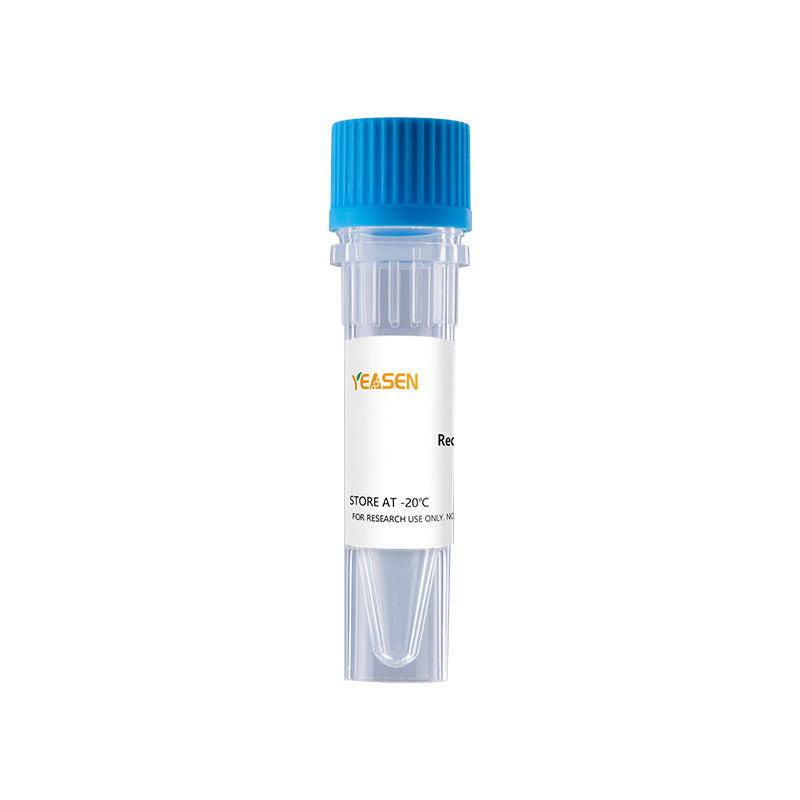Description
Human CCL13 is belonging to the CC chemokine family and is encoded by the gene CCL13. CCL13 (MCP-4) shares 56-61 % sequence identity with MCP-1 (CCL2) and MCP-3 (CCL7) and is 60 % identical to Eotaxin (CCL11). CCL13 was a potent chemoattractant for monocytes and eosinophils and stimulated histamine release from basophils. CCL13 can induce a calcium flux in HEK-293 cells transfected with the receptor CCR2B and CCR3. That shows the function receptors of CCL3 are CCR2B and CCR3.
Product Properties
|
Synonyms |
CCL13 Protein, Human; CKb10 Protein, Human; MCP-4 Protein, Human; MCP4 Protein, Human; NCC-1 Protein, Human; NCC1 Protein, Human; SCYA13 Protein, Human; SCYL1 Protein, Human |
|
Accession |
Q99616 |
|
GeneID |
6357 |
|
Source |
E.coli-derived human Monocyte Chemotactic Protein-4, Gln24-Thr98 |
|
Molecular Weight |
Approximately 8.6 kDa. |
|
AA Sequence |
QPDALNVPST CCFTFSSKKI SLQRLKSYVI TTSRCPQKAV IFRTKLGKEI CADPKEKWVQ NYMKHLGRKA HTLKT |
|
Tag |
None |
|
Physical Appearance |
Sterile Filtered White lyophilized (freeze-dried) powder. |
|
Purity |
> 96 % by SDS-PAGE and HPLC analyses. |
|
Biological Activity |
Fully biologically active when compared to standard. The biological activity determined by a chemotaxis bioassay using human monocytes is in a concentration of 10-100 ng/ml. |
|
Endotoxin |
Less than 1 EU/μg of the protein as determined by LAL method. |
|
Formulation |
Lyophilized from a 0.2 μm filtered concentrated solution in 20 mM PB, pH 7.4, 130 mM NaCl. |
|
Reconstitution |
We recommend that this vial be briefly centrifuged prior to opening to bring the contents to the bottom. Reconstitute in sterile distilled water or aqueous buffer containing 0.1% BSA to a concentration of 0.1-1.0 mg/mL. Stock solutions should be apportioned into working aliquots and stored at ≤ -20°C. Further dilutions should be made in appropriate buffered solutions. |
Shipping and Storage
The products are shipped with ice pack and can be stored at -20℃ to -80℃ for 1 year.
Recommend to aliquot the protein into smaller quantities when first used and avoid repeated freeze-thaw cycles.
Cautions
1. Avoid repeated freeze-thaw cycles.
2. For your safety and health, please wear lab coats and disposable gloves for operation.
3. For research use only.
Payment & Security
Your payment information is processed securely. We do not store credit card details nor have access to your credit card information.
Inquiry
You may also like
FAQ
The product is for research purposes only and is not intended for therapeutic or diagnostic use in humans or animals. Products and content are protected by patents, trademarks, and copyrights owned by Yeasen Biotechnology. Trademark symbols indicate the country of origin, not necessarily registration in all regions.
Certain applications may require additional third-party intellectual property rights.
Yeasen is dedicated to ethical science, believing our research should address critical questions while ensuring safety and ethical standards.

